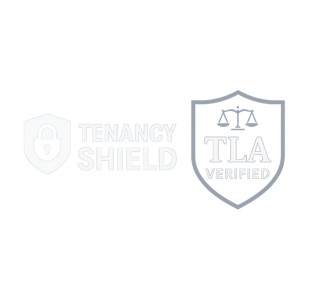Due to TLA's membership reaching 75,000 members, we are temporariliy disabling new user registrations for a limited period only
Legal Governance and Representation Framework
The Landlord Association ("TLA") is an independent, not-for-profit Unincorporated Association operating within the jurisdiction of England and Wales. TLA exists to support tenants and landlords in understanding their rights and responsibilities under UK housing law. We offer dispute mediation, legal correspondence, resources, and advocacy relating to tenancy issues. This page outlines our legal foundation, governance documents, and authority to act on behalf of clients.
Our Legal Status
Organisation Name: The Landlord Association (TLA)
Type: Unincorporated Association
Jurisdiction: United Kingdom (England and Wales)
Legal Status: Not-for-profit body governed by a written constitution
Registration: Not required under Companies House per UK government guidance (source)
Year Established: 2001 (formerly located at landlordexpert.co.uk)
TLA operates under its constitution and within the framework of UK housing legislation. We do not claim regulatory status as a law firm but operate within the boundaries of authorised legal representation as a non-commercial association.
Authority to Act
TLA is authorised to act as a legal and administrative representative for tenants or landlords under express written instruction. This includes:
Mediation and alternative dispute resolution (ADR)
Legal correspondence with landlords, agents, and public bodies
Advocacy in matters involving tenancy deposits, disrepair, and contract disputes
Pre-litigation guidance in line with the Civil Procedure Rules and Pre-Action Protocols
We do not provide reserved legal services as defined by the Legal Services Act 2007, and we do not represent individuals in court proceedings unless permitted under lay representative rules.
Governance Documentation
To ensure transparency and accountability, we make our core governance and procedure documents publicly available:
✉️ View Our Dispute Mediation Protocol
These documents establish the Association's lawful standing, processes, and commitments.
Constitution of The Landlord Association
1. Name and Legal Status
The organisation (previously known as Landlord Expert (formerly www.landlordexpert.co.uk) shall be known as The Landlord Association, hereinafter referred to as "TLA." It shall operate as an unincorporated association and not for profit.
2. Purpose and Objectives
The objectives of the Association are to:
Promote fair and lawful relationships between landlords and tenants
Provide educational resources on landlord and tenant rights
Offer representation and assistance in resolving housing-related disputes
Facilitate mediation and promote access to justice through pre-litigation resolution
3. Membership
Membership is open to individuals and organisations who support the objectives of the Association.
Members must agree to abide by this Constitution and any regulations made under it.
The Association may create different classes of membership and assign rights accordingly.
4. Executive Committee
The Association shall be managed by an Executive Committee, which shall include:
Chairperson
Secretary
Treasurer
Legal Liaison (as applicable)
The Committee shall be elected annually by the membership.
The Committee has authority to act on behalf of the Association in all matters.
5. Legal Representation Authority
The Association, through authorised officers or representatives, may act on behalf of its members for purposes of dispute resolution and pre-litigation matters.
Written consent from the member must be obtained prior to any such representation.
6. Meetings
An Annual General Meeting (AGM) shall be held once per year.
Special Meetings may be called by the Committee or by petition of 10% of members.
7. Finances
All funds shall be used solely to further the Association’s objectives.
A bank account shall be maintained in the Association's name or an individual assigned to handle its financial affairs.
The Treasurer shall provide an annual financial report at the AGM.
8. Amendments
This Constitution may be amended by a two-thirds vote at a General Meeting, provided members have received 14 days’ notice of the proposed changes.
9. Dissolution
Upon dissolution, any remaining funds shall be donated to a housing or legal access charity selected by the Committee.
10. Liability
As an unincorporated association, individual members of the Association may be personally liable for its debts and obligations unless indemnified.
Dispute Mediation Protocol
Purpose
This protocol outlines the steps and standards followed by The Landlord Association when providing mediation and pre-action support in housing disputes. It ensures compliance with the Pre-Action Protocol for Housing Conditions Claims and encourages amicable resolution.
Scope
Applies to all tenant-landlord disputes submitted to TLA, including:
Deposit disputes
Property disrepair
Breach of contract
Unlawful deductions or eviction threats
Steps in the Mediation Process
1. Submission
The complainant submits a signed instruction letter authorising TLA to act.
Relevant documentation (e.g., tenancy agreement, inventory, communications) must be provided.
2. Review and Legal Assessment
TLA assesses the legal merits of the case within 5 working days.
Where appropriate, we issue a formal notice of mediation proposal to the respondent.
3. Communication and Timeline
The respondent is given a defined deadline (typically 7–14 days) to reply.
TLA may send reminders and note refusal to engage, which may later be presented as evidence in adjudication or litigation.
4. Resolution or Escalation
If the respondent agrees to mediate, TLA facilitates written or verbal resolution.
If no resolution is achieved, TLA supports the tenant in referring the matter to the Tenancy Deposit Scheme and/or small claims court.
Ethical Standards
All parties are expected to act in good faith.
TLA representatives must remain impartial and follow evidence-based procedures.
Confidentiality is maintained unless disclosure is legally required.
For any questions regarding our governance or dispute handling process, please contact:
legal@landlordassociation.org.uk
www.landlordassociation.org.uk
Providing expert legal resources, guidance, and support for UK landlords and tenants to ensure compliance, protection, and peace of mind
Assistance
StaY Updated
© 2025 The Landlord Association. All rights reserved. No part of this site may be reproduced without permission.


Useful Links
Contact Us


